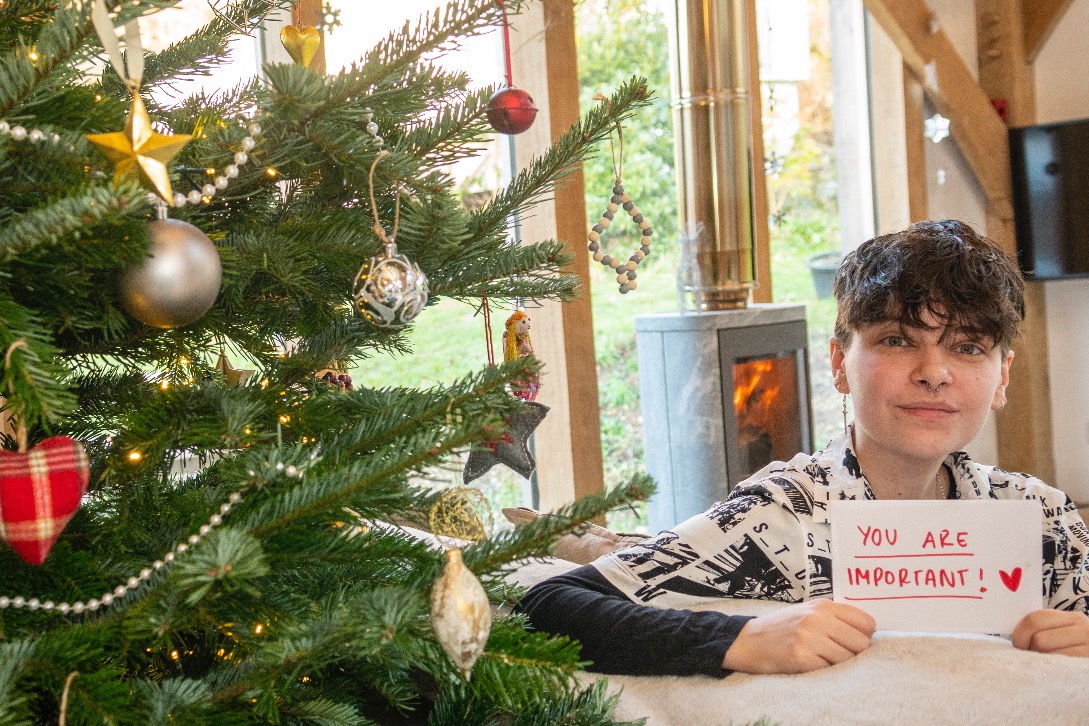Ellis knows just how important it is to get a card when you’re feeling isolated.
Five years ago the 21-year-old was bed bound with ME, unable to move, brush their own teeth or even hold a conversation. Ellis was cut off from the world, and depended on their parents for everything – they even needed to be spoon fed. Instead of talking, Ellis’ friends sent letters – “even though I couldn’t send them back”.
The comfort Ellis took from the letters is one of the main reasons why they decided to start a GoFundMe to send Christmas cards to LGBT+ people who have been disowned by their own families.
“When I came out as bisexual I was overwhelmed by how supportive my parents were and it made me think about the people who aren’t supported,” Ellis, who is also trans, tells GoFundMe.
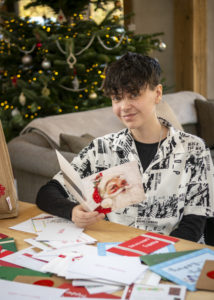
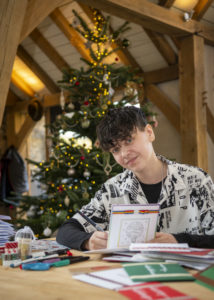
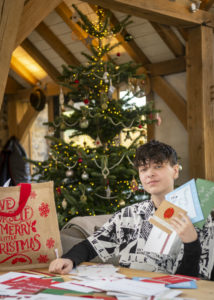
The idea caught on, and Ellis ended up sending 4,000 cards to people in 35 countries last year. This year, they are planning to send even more.
The demographics are as diverse as you’d expect. “I think the youngest person I’ve sent a card to was 13. Fifty is the oldest. The majority are in America but some are in countries where it’s illegal to be gay. There’s a lot of people from religious backgrounds, a lot of people from the bible belt. There are also quite a lot in Britain,” Ellis tells GoFundMe.
“I get emails from people or a card thanking me. But it’s for them, it’s not about me. There are a lot of people who say ‘this is the only card I’ve gotten.’ I’ve had so many people tell me they cried when they got it. A couple of people said it saved their lives because they felt so isolated.
“For trans recipients it’s quite a big thing. A lot of them don’t have people in their life who call them by their own name, or address them by the right pronoun.”
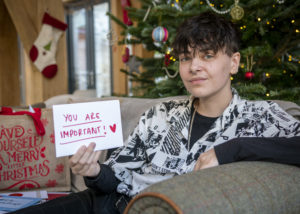

Ellis’s method is quite simple: people can sign up to become a recipient through a form on the project’s website https://www.therainbowcardsproject.org/. They can also sign up to write cards, which go to a PO box address. Ellis processes the cards and sends them to the addresses, which are kept private.
“I don’t give out addresses. My main focus is on safety. I wanted people from unsafe situations to be able to sign up without any fear. I knew all the cards would have to come through me, so I’d need a PO box.”
The reception, Ellis says, has been largely positive. “When the project is in the press I get a lot of ‘why are you doing this, there’s much bigger problems in the world’. I think people don’t really understand people not getting Christmas cards is a symptom of a much larger rejection. It’s not the Christmas cards, it’s that their family doesn’t love and support them anymore.”
Ellis’s top fundraising tips:
1. Be honest
“At first I was worried, as my GoFundMe is to pay for postage, people would say ‘why can’t you fund that yourself’. Once you talk openly about the breakdown of the cost they understand why.”
2. Be willing to talk about why it’s important
“Get into the emotional side of it. People aren’t going to care about a total. They want to know what it matters before they give you money.”
3. Find your niche
“For me it was asking other queer people to share it – I think a lot of cis heterosexual people aren’t going to understand what it’s like to be cut off from their family like that and how scary it is. A lot of people don’t realise how important things are”
4. Share testimonials
“Make people understand why things matter. In an ideal world this project wouldn’t exist, coming out would not be a big deal. There would be no fear, rejection or homelessness.”

